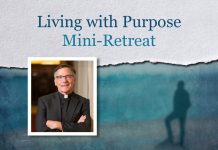In my freshman seminar yesterday, my class and I were discussing Plato’s Republic, and specifically his strong focus on thinking about the good of the city over the good of the individual person. As usual, my students found this focus somewhat confusing—they (like us) think as free individuals and so are unaccustomed to thinking about their lives being constrained for the purpose of an abstract “common good.”
I suggested that the best analogy for our purposes is a sports team. No problems there—Boston College teems (no pun intended) with former and current athletes. My individual good, I suggested, is really of secondary importance when it comes to a common good—the statistics I put up at the end of the game don’t mean a whole lot if we lose the game. We know the slogans: no “I” in team; take one for the team; we’re all in it together; and so on. Teams work best when the individuals don’t think of themselves first, but focus rather on what’s best for everyone. (It’s one reason why All-Star games are never as interesting as the finals, in any league.)
In the second week of the Spiritual Exercises, Ignatius has us imagine a God’s-eye view of the world. One way to think about that exercise is that it’s a way of getting us out of our individualism, to think about the big picture in which we are but one small part. Laborers in the vineyard. Servants to a divine master. Living with purpose, but a purpose much larger than our own small vision. Each player, of course, wants to be a star, wants the game to unfold the way he or she sees it—but only the coach can have the big picture. Each player’s individual vision will be curtailed again and again. Each person’s ego will take frequent hits from God’s playbook. But living with purpose is, in the big picture, living not primarily with my (perceived, limited) purpose, but hopefully with an eye to discerning God’s big purpose.
The medieval labyrinth emerges, in this picture, as an exercise reminding us of this discernment process. We move toward our perceived goal, only to be pushed in circles away from it. We follow a path not ultimately of our choosing, but led by grace toward an end we do not see. Faith is precisely that gift that moves us onward. We cannot see the big picture; only God does. But we can live with purpose even without such a vision, for lack of understanding our purpose is not the same as lacking a purpose altogether. We do have a purpose; that is why God created us. And with God’s help we will come to discover it.



Welcome Tim and thanks.
Tim, I’m so glad you’re blogging here now! Thanks for this helpful post.